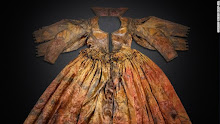Carrie Chapman Catt may be a name less familiar to some than the name of her mentor Susan B. Anthony, yet with her considerable organizational skills — a brilliant strategist and former teacher — she was the most recognized name in the U.S. suffrage movement in the early twentieth century. Catt led the National American Woman Suffrage Association in its final, exhaustive push to win the vote for women in the summer of 1920. In her brilliant book, The Woman’s Hour: The Great Fight to Win the Vote published in 2018, Elaine Weiss described the scene when Catt finally returned to her home in New York once the Nineteenth Amendment was signed into law. Catt sat at her desk and, looking out at her garden, wrote “a poignant charge to the women voters of the nation”:
The vote is the emblem of your equality, women of America, the guaranty of your liberty. That vote of yours has cost millions of dollars and the lives of thousands of women. Women have suffered agony of soul which you never can comprehend, that you and your daughters might inherit political freedom. That vote has been costly. Prize it!
The vote is a power, a weapon of offense and defense, a prayer. Use it intelligently, conscientiously, prayerfully. Progress is calling to you to make no pause. Act!
With 33 years of suffrage work behind her, Carrie Chapman Catt moved on to voter registration and voter education through the League of Women Voters, an organization she helped launch. (Eleanor Roosevelt was one of Catt’s protégées.) When she turned her energies back to anti-war efforts, Weiss explained, Catt was “monitored by the FBI,” possibly for the rest of her life. “Alarmed by Adolf Hitler’s rise to power in Germany in 1933, she organized Jewish support groups and lobbied the U.S. government to ease immigration restrictions for refugees.” Mrs. Catt, as she was respectfully known by many, died of a heart attack in 1947 at the age of 88 after a lifetime of service for you and me and the women of the world.
The new century brought many “uppity, contrary women” into the public sphere.... [Continue reading on MEDIUM.] Part II of V.




















